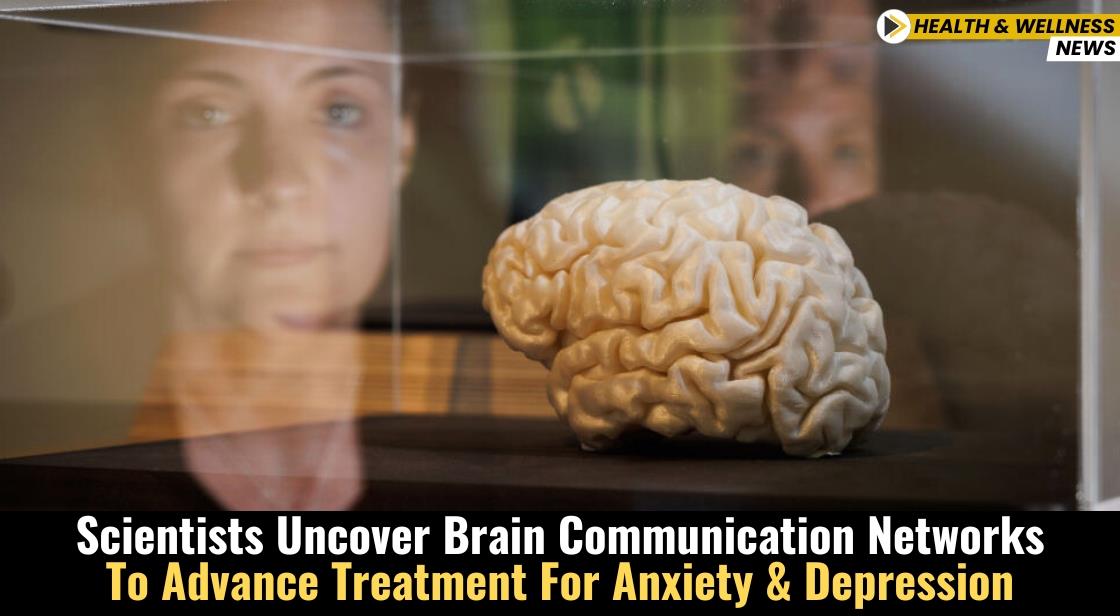Scientists Uncover Brain Communication Networks to Advance Treatment for Anxiety and Depression

News Synopsis
A groundbreaking study by a team of scientists from Northwestern Medicine, Chicago, has identified new areas in the brain that facilitate social interactions and maintain constant communication with the amygdala, a primitive part of the brain responsible for processing emotions like fear and threat. Published in the journal Science Advances, this discovery paves the way for innovative treatments for psychiatric disorders such as anxiety and depression.
Decoding the Brain’s Role in Social Connections
The study delves into how the human brain has evolved to interpret and respond to social cues—a critical skill for fostering relationships and understanding others' emotions. “We spend a lot of time wondering, ‘What is that person feeling, thinking? Did I say something to upset them?’” explained senior author Rodrigo Braga, highlighting the importance of social cognition in everyday life.
The regions enabling these complex abilities are part of the brain's more recently evolved areas, indicating that such skills are a relatively recent evolutionary development. Braga added, “In essence, you’re putting yourself in someone else’s mind and making inferences about what that person is thinking when you cannot really know.”
Social Cognitive Network and Its Connection to the Amygdala
The study published in the journal Science Advances reveals that the brain’s advanced social cognitive network is directly connected to the amygdala, often referred to as the "lizard brain" due to its association with primitive instincts like detecting threats and processing fear. This constant interaction enables humans to navigate intricate social behaviors, including parenting, mating, and understanding social hierarchies.
“The amygdala is responsible for social behaviors like parenting, mating, aggression, and navigating social-dominance hierarchies,” Braga noted. While earlier studies observed the co-activation of the amygdala and social cognitive network, this research is unique in demonstrating that “communication is always happening.”
Key Discovery: Medial Nucleus and Emotional Processing
Within the amygdala, the medial nucleus plays a pivotal role in social behavior. This study by Northwestern Medicine is the first to establish that the medial nucleus is directly linked to the recently evolved regions of the social cognitive network, responsible for thinking about others’ perspectives.
This connection gives the social cognitive network access to the amygdala's ability to process emotionally significant content. Researchers noted that this constant communication allows the brain to handle social and emotional complexities efficiently.
Implications for Treating Anxiety and Depression
Anxiety and depression are often linked to hyperactivity in the amygdala, which can result in heightened emotional responses and difficulties with emotional regulation. By understanding the brain's social and emotional connections, the researchers suggest that less-invasive treatments, such as transcranial magnetic stimulation (TMS), may be more effectively tailored.
The findings offer promising prospects for psychiatric therapies, potentially leading to significant improvements in managing these mental health conditions.
Conclusion
The study by Northwestern Medicine provides profound insights into the intricate communication networks within the brain, particularly between the social cognitive network and the amygdala. These findings not only deepen our understanding of how humans interpret social interactions but also highlight the amygdala's pivotal role in emotional processing and regulation.
With anxiety and depression posing significant challenges to mental health globally, this research offers hope for developing targeted, non-invasive treatments such as transcranial magnetic stimulation (TMS). By leveraging this advanced understanding of brain connectivity, future psychiatric therapies may become more effective in addressing emotional dysregulation and fostering mental well-being.
As science continues to uncover the complexities of the human brain, studies like these pave the way for breakthroughs that could transform how we approach and treat mental health conditions, ensuring a healthier, more emotionally balanced society.
You May Like









